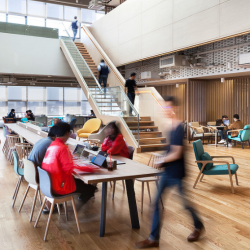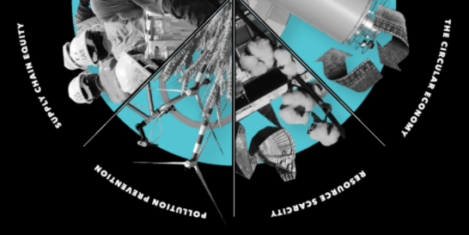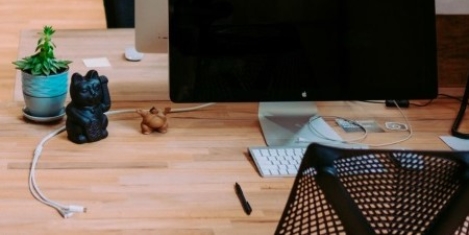To provide the best experiences, we use technologies like cookies to store and/or access device information. Consenting to these technologies will allow us to process data such as browsing behaviour or unique IDs on this site. Not consenting or withdrawing consent, may adversely affect certain features and functions.
The technical storage or access is strictly necessary for the legitimate purpose of enabling the use of a specific service explicitly requested by the subscriber or user, or for the sole purpose of carrying out the transmission of a communication over an electronic communications network.
The technical storage or access is necessary for the legitimate purpose of storing preferences that are not requested by the subscriber or user.
The technical storage or access that is used exclusively for statistical purposes.
The technical storage or access that is used exclusively for anonymous statistical purposes. Without a subpoena, voluntary compliance on the part of your Internet Service Provider, or additional records from a third party, information stored or retrieved for this purpose alone cannot usually be used to identify you.
The technical storage or access is required to create user profiles to send advertising, or to track the user on a website or across several websites for similar marketing purposes.
 Staff need on average three days a week (2.91) in the office to achieve maximum productivity, according to a new study by ISG. In results from the UK-wide “The Power of Place” study examining the future of the workplace, employees believed that spending on average three days a week in the office would be optimal for productivity. When asked how many days they thought would be needed to optimise their wellbeing, workers cited on average over half a day less, 2.34 days per week, in the office. (more…)
Staff need on average three days a week (2.91) in the office to achieve maximum productivity, according to a new study by ISG. In results from the UK-wide “The Power of Place” study examining the future of the workplace, employees believed that spending on average three days a week in the office would be optimal for productivity. When asked how many days they thought would be needed to optimise their wellbeing, workers cited on average over half a day less, 2.34 days per week, in the office. (more…)








 Companies are facing complex performance challenges as the COVID-19 resurgence heightens the need to reinvigorate employee engagement.
Companies are facing complex performance challenges as the COVID-19 resurgence heightens the need to reinvigorate employee engagement. 
 A survey issued by architecture, design, and planning firm
A survey issued by architecture, design, and planning firm 
 Men, younger people, and those with conservative political views are less likely to comply with Covid-19 measures such as social distancing, claims new research from
Men, younger people, and those with conservative political views are less likely to comply with Covid-19 measures such as social distancing, claims new research from 


 Climate change has accelerated the urgency to address the way people live and work. With the UK’s aim to become carbon neutral by 2050,
Climate change has accelerated the urgency to address the way people live and work. With the UK’s aim to become carbon neutral by 2050, 
 In the
In the 
 GlobalWebIndex (GWI), together with LinkedIn’s B2B Institute, has launched “
GlobalWebIndex (GWI), together with LinkedIn’s B2B Institute, has launched “
 New research from
New research from 


 The pandemic has totally shattered workplace norms, so it’s going to take a while before we see organizations returning to work at full capacity. When it does happen, it will require extensive planning and constantly evolving styles of people management. In addition to the logistics of phasing people back into the office and staggering shifts, you’ll need to work with your team to address their anxieties and make sure they feel comfortable in their environment.
The pandemic has totally shattered workplace norms, so it’s going to take a while before we see organizations returning to work at full capacity. When it does happen, it will require extensive planning and constantly evolving styles of people management. In addition to the logistics of phasing people back into the office and staggering shifts, you’ll need to work with your team to address their anxieties and make sure they feel comfortable in their environment. 








November 19, 2020
Covid-19 is levelling the playing field for disabled workers
by Ruby Gullon • Comment, Flexible working, Wellbeing